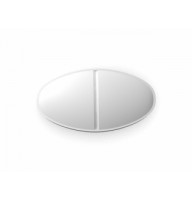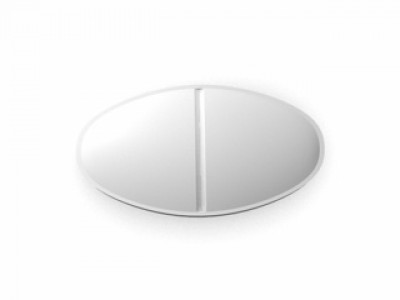The dosage of Uniphyl CR (Theophylline) varies depending on several factors, including the individual's age, weight, medical condition, and response to treatment. It's important to follow the specific instructions provided by your healthcare provider regarding dosage and administration. Uniphyl CR is typically prescribed in extended-release tablets, which are designed to release the medication slowly over time, allowing for once-daily dosing in most cases. This controlled-release formulation helps maintain consistent levels of theophylline in the bloodstream, optimizing its effectiveness in managing respiratory symptoms.
The starting dose of Uniphyl CR and any adjustments to the dosage are determined based on factors such as the severity of the respiratory condition being treated and the patient's tolerance to the medication. Healthcare providers often initiate treatment at a lower dose to minimize the risk of side effects and gradually increase the dose as needed to achieve therapeutic benefits.
Monitoring theophylline levels in the blood is a common practice to ensure that patients are receiving the appropriate dosage. Blood tests may be conducted periodically, especially at the beginning of treatment or if there are changes in the patient's health status or other medications that could affect theophylline metabolism.
For elderly patients or those with kidney or liver impairment, dosage adjustments may be necessary to avoid potential toxicity or inadequate therapeutic effect. These adjustments are typically made based on the results of blood tests and close monitoring of symptoms.
It's important for patients to adhere to their prescribed dosage regimen and not adjust their dose without consulting their healthcare provider. Abruptly stopping or changing the dosage of Uniphyl CR can lead to worsening of symptoms or potential withdrawal effects. If you have any questions or concerns about your dosage or how to take Uniphyl CR, discuss them openly with your healthcare provider to ensure safe and effective management of your respiratory condition.

